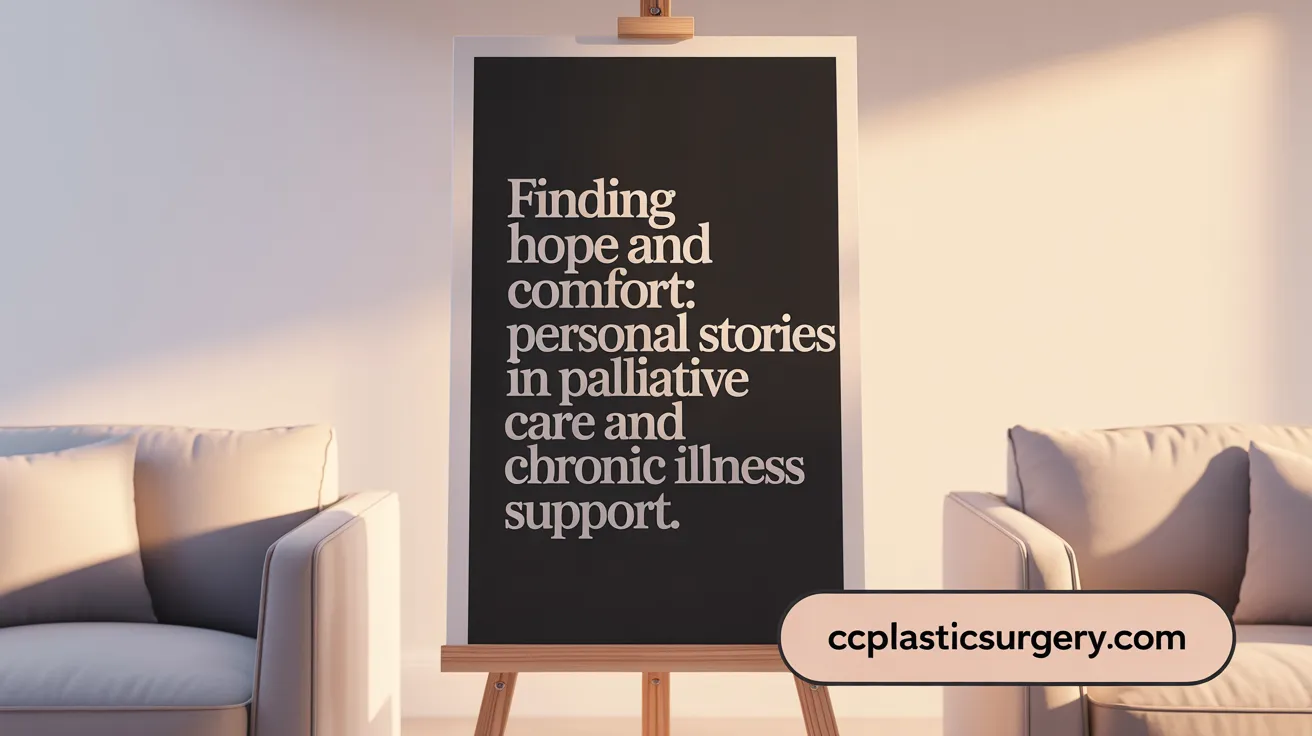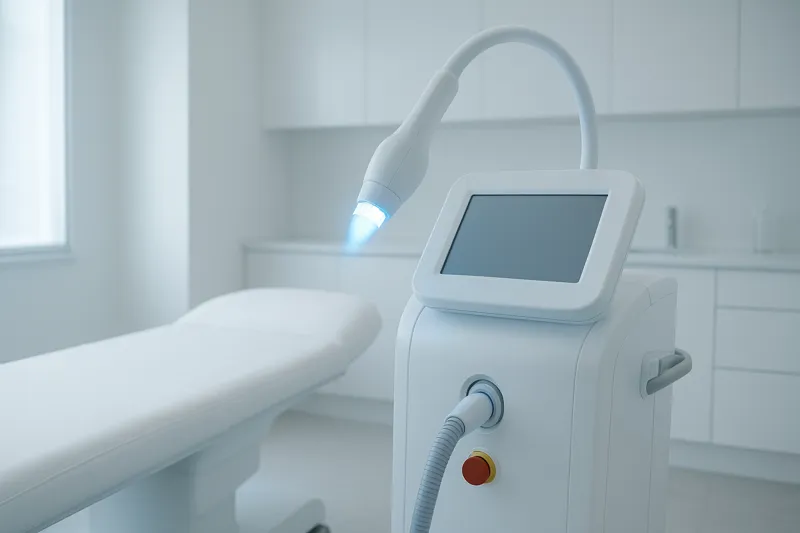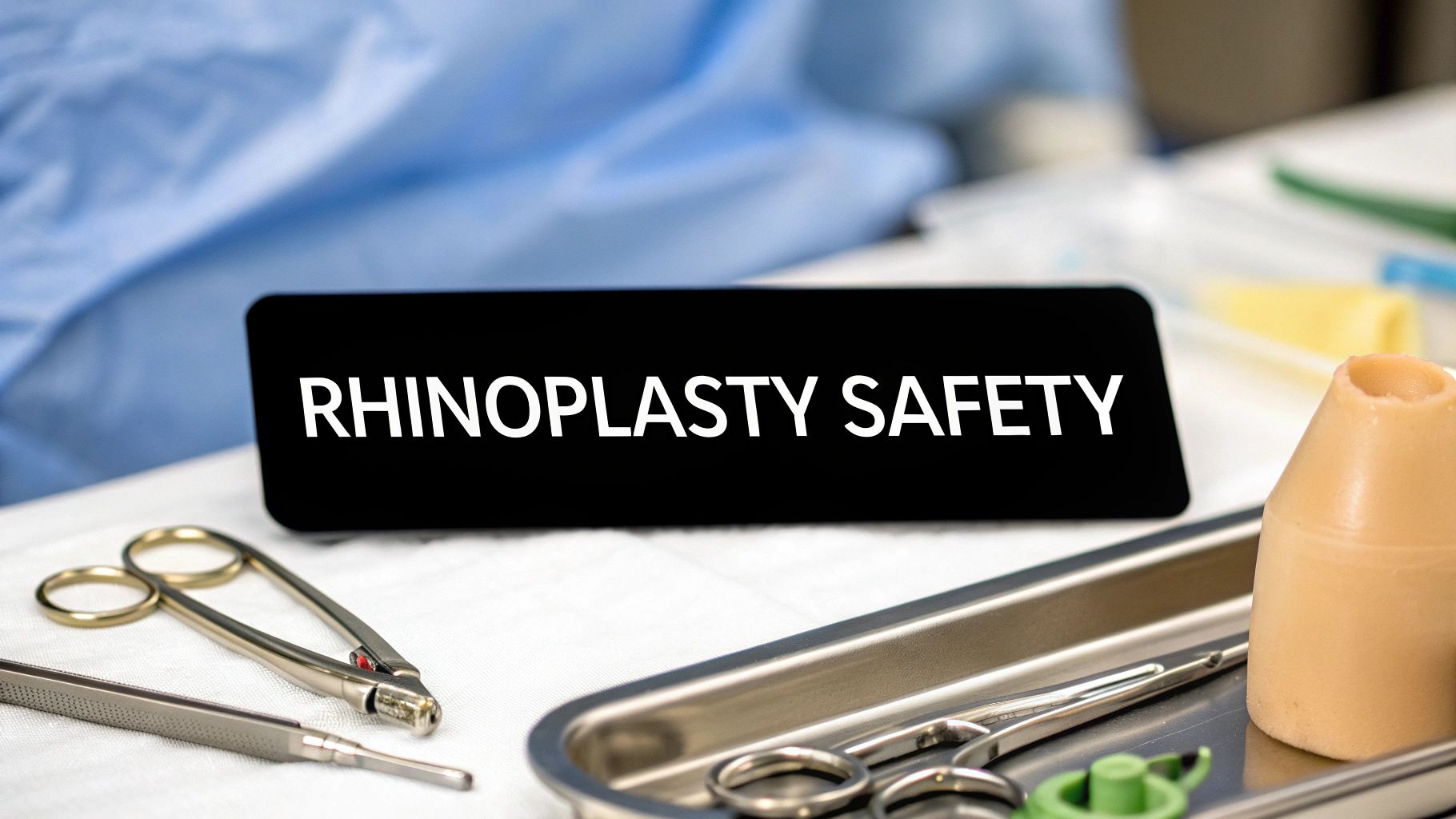
January 19, 2026
What Is Gynecomastia Surgery A Guide to Restoring Chest Contour
Considering what is gynecomastia surgery? This guide explains the causes, surgical techniques, recovery process, and how to choose the right surgeon for you.
Oct 13, 2025

Every patient story is a testament to the courage and resilience inherent in the human spirit. Across medical disciplines, from surgical interventions to rehabilitation, the narratives of real people overcoming daunting health challenges inspire hope and motivate others. This article explores diverse and powerful patient success stories, revealing the transformative impact of healthcare innovations and compassionate care. Through detailed testimonials and before-and-after journeys, we witness how medical breakthroughs, patient perseverance, and dedicated support systems converge to change lives profoundly.

Across the healthcare landscape, numerous inspiring stories showcase how medical treatments and procedures have profoundly transformed lives. One remarkable example is Matthew Houder scoliosis treatment. He underwent multiple surgeries using the VEPTR spinal device surgery, which significantly improved his mobility and quality of life. Today, Matthew can walk independently and communicate effectively, demonstrating the potential for long-term recovery through advanced surgical intervention.
In Zambia, Jenipher Musonda obstetric fistula recovery is equally inspiring. She suffered from obstetric fistula for 23 years before receiving life-changing surgical repair supported by the Fistula Foundation surgery support. Her successful treatment restored her dignity and social well-being, allowing her to resume normal activities and rebuild her life.
Another powerful example comes from Angie Kohler stroke recovery, who suffered a devastating stroke at age 37. Thanks to the use of the innovative EmboTrap® II device, her stroke was successfully treated, enabling her to participate in a half-marathon. Her recovery exemplifies hope, resilience, and the potential for rapid advancement in stroke care.
Medical breakthroughs also play a critical role in managing chronic diseases. Catarina Rosa pulmonary arterial hypertension management, diagnosed with pulmonary arterial hypertension at age 10, now actively manages her condition with ongoing treatment, allowing her to work and live actively. Similarly, Ntimbwe Mpamba HIV-positive advocacy, living with HIV from childhood, has achieved a healthy, normal life through proper treatment, becoming an advocate against stigma.
These stories highlight how interdisciplinary care, innovative medical technologies, and dedicated healthcare support significantly improve patient outcomes. They serve as powerful reminders of the ongoing progress in medical science that continues to help individuals live healthier, fuller lives regardless of their starting point or medical challenge.

Real-life stories of patient transformation and recovery are incredibly impactful for those dealing with similar health issues. These narratives act as tangible proof that significant change is achievable, providing hope and inspiration.
Patients often share their journeys—from pre-surgery struggles with obesity, sleep apnea, or diabetes, to post-surgery successes like improved energy levels and health markers. For example, individuals like Carol's weight loss journey, who lost 100 pounds, and Ken's medication-free story, who reduced from 454 to 223 pounds and discontinued medications, highlight that major health improvements are within reach.
These testimonials also foster a sense of community and trust. When others see relatable patient perseverance stories and positive outcomes, they feel less alone and more motivated to pursue their own health goals. Personal stories emphasize the importance of personalized surgical plans, ongoing support, and lifestyle changes that contribute to lasting success.
By showcasing before and after surgery stories, such as patients proudly displaying their improved physiques and new abilities to participate in activities like running marathons or playing sports, these stories powerfully demonstrate the tangible benefits of bariatric surgery.
Sharing this information encourages active participation in treatment plans, boosts confidence in medical interventions, and sustains motivation throughout the recovery journey. Overall, these compelling patient success stories serve as a beacon of hope, inspiring others to pursue healthier lives despite challenges.
| Patient Name | Weight Loss | Health Improvements | Personal Achievements |
|---|---|---|---|
| Carol | From 302 lbs to 202 lbs | Resolution of sleep apnea and hypertension | Lost weight and regained activity levels |
| Ken | From 454 lbs to 223 lbs | Discontinued insulin and cholesterol meds | Enjoys physical activities and reduces health risks |
| Jay | From 333 lbs to 170 lbs | Improved mobility, completed marathons | Participates in races and maintains active lifestyle |
This visual summary depicts common themes across success stories: significant weight loss, health benefits, and renewed personal pursuits.
In summary, these real patient journeys powerfully demonstrate that with the right medical care and support, meaningful change is possible. They motivate others to take steps toward better health, fostering hope and resilience in the face of adversity.

Rehabilitation success stories are powerful tools that illustrate the transformative impact of comprehensive healthcare services. These narratives highlight real patient journeys from challenging health conditions to renewed independence and physical strength. For example, many patients recovering from stroke or brain injury describe regaining mobility, speech, and confidence, often exceeding initial expectations. Such stories often involve detailed before-and-after accounts, emphasizing both physical improvements and emotional resilience.
Spinal cord injury patients, in particular, showcase remarkable progress, with individuals describing how personalized therapy helped them walk again or adapt to new ways of living. These successes underscore the importance of multidisciplinary approaches involving physical, occupational, and speech therapies tailored to each patient.
Patient testimonials reveal how these stories influence prospective patients by providing relatable, authentic experiences. They foster trust and emotional connections, encouraging others to seek help and participate in rehabilitation programs. Overall, these narratives serve to inspire hope, demonstrate effective treatment outcomes, and reinforce the commitment of healthcare providers to patient-centered care.
| Success Area | Patient Achievement | Supporting Details |
|---|---|---|
| Stroke recovery | Walking, speaking, regaining independence | Multiple examples of stroke survivors returning to daily activities |
| Brain injury rehabilitation | Walking independently, kayaking, resuming hobbies | Stories of brain injury patients surpassing previous functional limits |
| Spinal cord injury progress | Walking with prosthetics, resuming work | Patients regaining mobility and returning to their routines (spinal cord injury success stories) |
These stories embody hope and perseverance, illustrating that with dedicated care and individualized therapy, significant recovery is possible. They continue to motivate patients, families, and healthcare teams alike.

Sharing patient stories related to palliative care, mental health, and addiction recovery plays a crucial role in education and fostering hope. These narratives help the public understand that mental health conditions, addiction, and chronic illnesses are treatable medical issues, which can dispel common misconceptions rooted in stigma or moral judgments.
Personal stories humanize those facing such challenges, illustrating resilience and highlighting that improvement and even recovery are possible. When patients openly discuss their experiences—such as overcoming feelings of despair in mental health struggles or managing chronic illnesses with dignity—they challenge stereotypes and encourage society to view these conditions through a compassionate lens.
Moreover, these narratives serve as beacons of hope for others in similar situations. They demonstrate that living with a chronic illness or managing mental health concerns doesn’t mean giving up on a fulfilling life. Sharing positive outcomes inspires others to seek help, adhere to treatment, and remain hopeful even in tough circumstances.
Beyond individual inspiration, such stories influence societal attitudes by fostering greater empathy and understanding. This shift can lead to improved support systems, reduced discrimination, and policies that promote better access to care.
In essence, storytelling in palliative care and mental health recovery educates, humanizes, and motivates societal change—making these journeys visible and valued, encouraging a community of hope and acceptance for all.
Patient feedback and testimonials hold a vital place in shaping healthcare quality and elevating patient satisfaction. They offer firsthand insights into the patient experience, revealing what works well and what needs improvement. Healthcare providers can analyze these stories to identify strengths such as compassionate care, effective communication, and personalized treatment plans, while also pinpointing areas requiring attention.
When feedback is systematically gathered, it enables targeted efforts to refine care processes, boost safety measures, and enhance overall service delivery. For example, success stories from facilities like Atlanta Bariatrics show how ongoing support, such as nutritional counseling and support groups, contributes to better outcomes and greater patient confidence. These narratives not only reflect clinical success but also highlight the emotional and psychological benefits of care, fostering trust in the healthcare system.
Testimonials act as powerful social proof, building credibility and encouraging others to seek treatment. Prospective patients often look for real stories of transformation and hope, which reinforce the organization’s reputation. Incorporating patient voices into quality initiatives signals a patient-centered approach—one where emotional well-being and personal goals are valued equally with medical outcomes.
Furthermore, patient stories drive a culture of continuous improvement. They motivate healthcare teams to prioritize relational and communication skills, translating patient perspectives into actionable changes. As a result, healthcare organizations become more responsive, adaptable, and committed to delivering high-quality, compassionate care. Many institutions share inspirational patient stories of perseverance and resilience that inspire these ongoing efforts.
In summary, gathering and utilizing patient testimonials not only fosters trust and engagement but also fuels organizational learning. This ensures that healthcare systems evolve in ways that truly meet patient needs, ultimately leading to improved health outcomes and higher levels of patient satisfaction. For more insights into the power of patient narratives and their impact, see The Unstoppable Power of Healthcare Success Stories: Evidence-Based Insights.

Presenting a wide range of case studies is essential because it demonstrates the rich variability and complexity of real-life health journeys. These stories reveal how different interventions work across various conditions and populations, offering detailed insights into the mechanisms, obstacles, and non-linear pathways of recovery and treatment.
For example, patients who have undergone weight loss surgeries like gastric bypass or sleeve gastrectomy share not only their impressive physical transformations but also improvements in conditions like hypertension and sleep apnea. Similarly, rehabilitation stories, such as those from the Craig Hospital or Kessler Institute, highlight remarkable recoveries in mobility and independence after strokes, spinal injuries, or neurological diseases.
Diverse case studies help clinicians and patients set realistic expectations, tailor treatments, and recognize the individual factors that influence success. They stress the importance of cultural competence and workforce diversity, emphasizing how personalized care enhances patient trust and satisfaction.
By incorporating various experiences, healthcare providers can improve external validity and cultural sensitivity, leading to more equitable and effective care for everyone.
Patient success stories reveal the profound and multifaceted impact of medical care on individual lives. They educate, inspire, and build bridges of trust between patients and healthcare providers. By sharing detailed journeys across diverse medical fields—from weight loss surgeries to complex rehabilitation, from chronic illness management to pioneering clinical trials—these narratives ignite hope and demonstrate resilience. They also reinforce the value of patient feedback in enhancing healthcare quality and advocate for continuous innovation. Ultimately, these stories are more than testimonials; they are powerful testimonies to the human spirit's capacity to overcome adversity and embrace transformation, inviting us all to envision brighter possibilities in health and healing.

January 19, 2026
Considering what is gynecomastia surgery? This guide explains the causes, surgical techniques, recovery process, and how to choose the right surgeon for you.

January 19, 2026
Exploring the Advancements and Advantages of Non-Invasive and Laser Cosmetic Procedures

January 18, 2026
Is rhinoplasty dangerous? We answer your question with a clear breakdown of real nose job risks, safety statistics, and how to ensure a successful outcome.